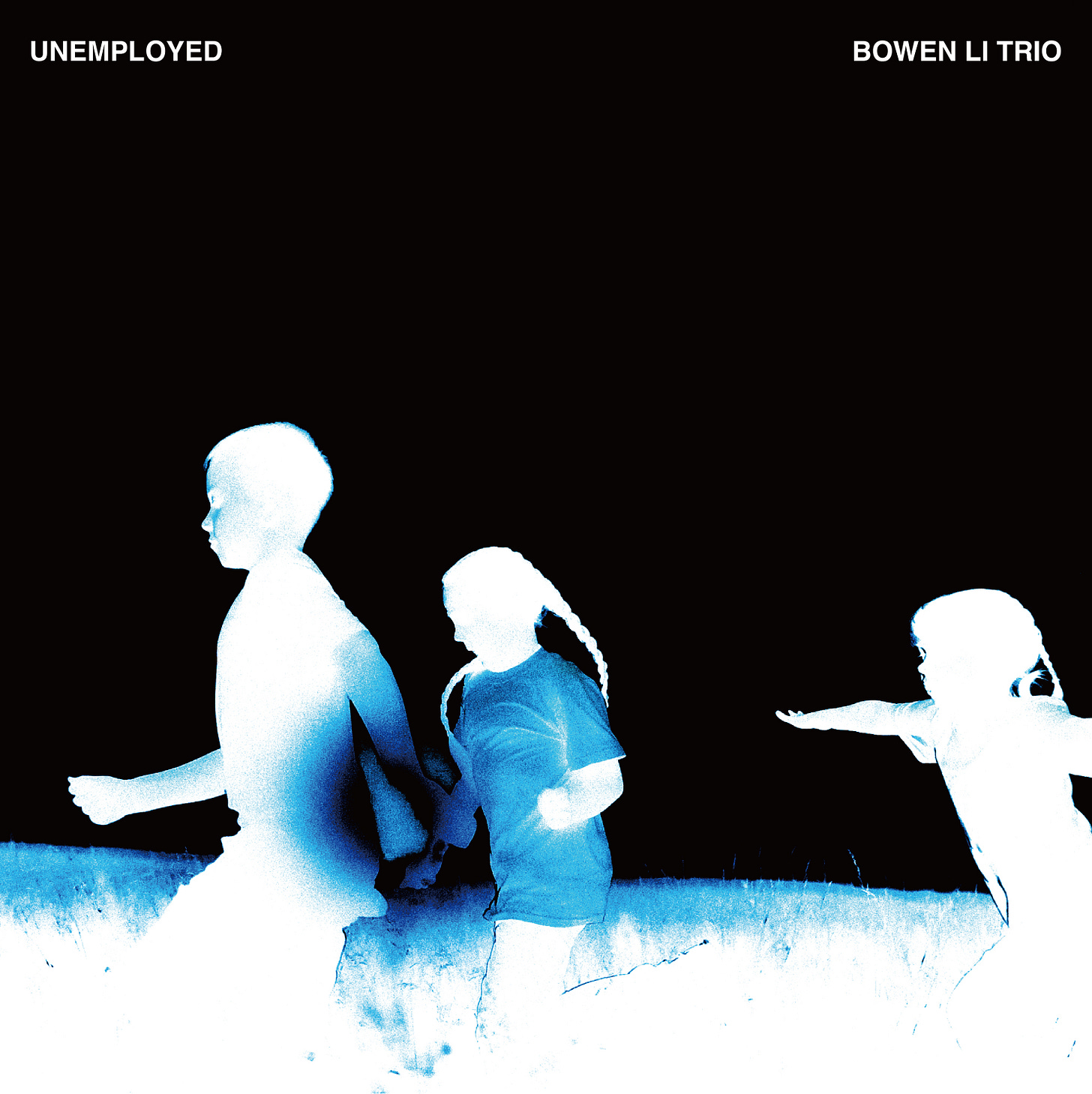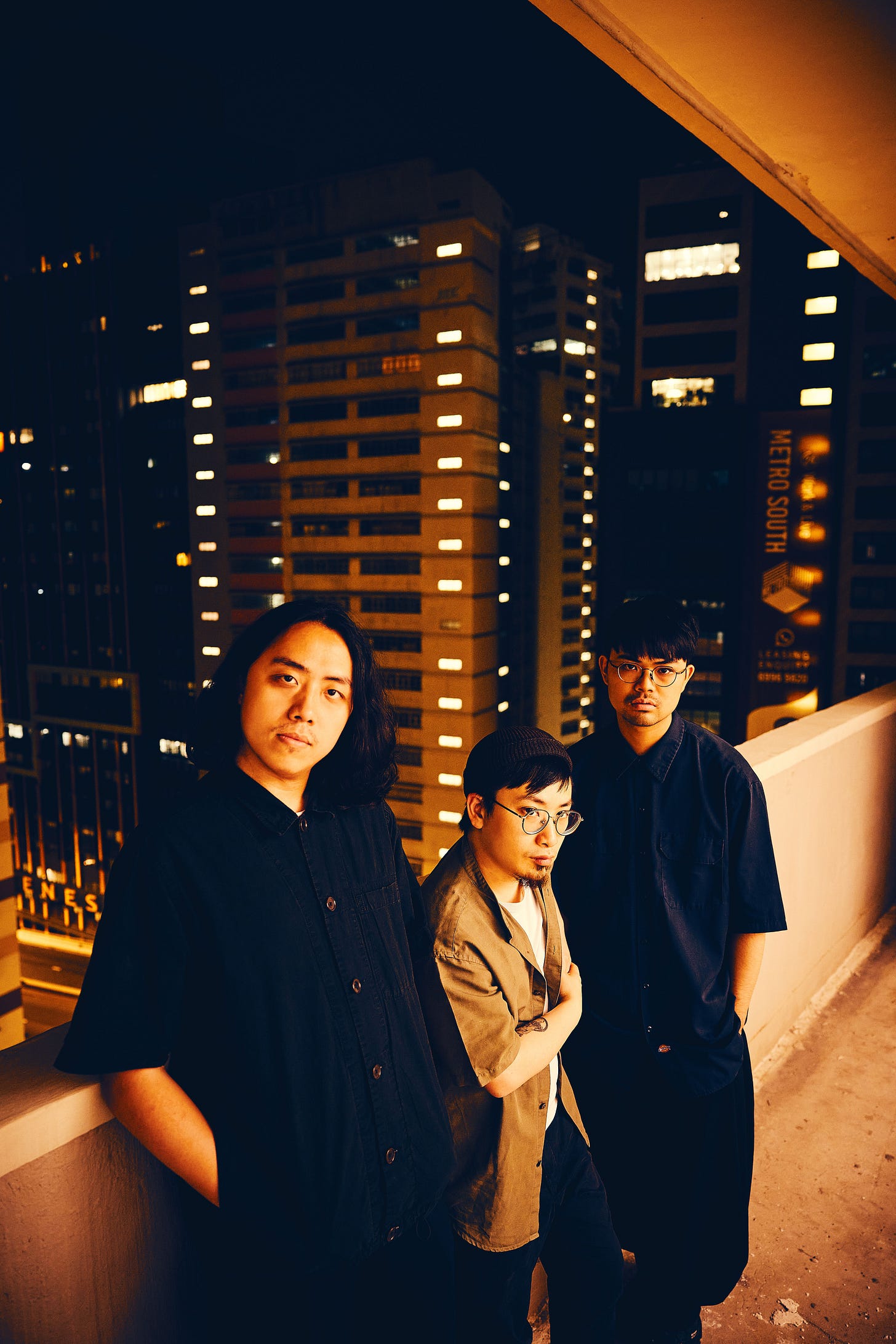Hong Kong pianist Bowen Li’s debut album Unemployed marks the arrival of a Serious Jazz Talent
Not yet 30, the daring improvisor leads a traditional acoustic trio intent on bringing soul and spontaneity to the stage
There’s an inherent dichotomy at the heart of great jazz. By its very nature, the best group improvisations are spontaneous and unpredictable – a chemical combustion of inspiration, intent and environment. And yet, consistently intuitive ensemble playing is grounded in the technique and musical fluency that only come with years of formal study, interplay and shared experience.
The half decade that pianist Bowen Li, double bassist Nelson Fung and drummer Dean Li have spent sharing bandstands is immediately evident on Unemployed, the first and only album credited to either the Bowen Li Trio or its 29-year-old eponymous leader.
It deserves your attention. Even if you don’t think you like jazz. Because it’s the real deal – a serious, sprawling, studious, all-live, all-acoustic traditional trio outing. Free from gimmickry or any concessions to the funky and spiritual fusions that have made jazz somehow, inexplicably, cool again over the past decade. Unemployed sits so neatly and brazenly in an established idiom – the continuum of great jazz trios leading from Art Tatum to Bill Evans right up to the present day – that it should be laughed out the room. But it holds up, prodding and pushing at the possibilities of the contemporary piano trio; of how many moods and textures can be conjured with just three acoustic instruments in a room.
From the opening notes of the single “Prince”, I was reminded of Brad Mehldau, so it was reassuring that the American pianist was the first influence Li named when I fired some questions over. And there’s zero sleight in being compared to arguably the most engaging piano trio to emerge in the past three decades (another contender for that title might be early Robert Glasper – who also gets a shout out from Bowen below).
Time is a funny thing. The album’s nine originals were written over the past six years – yet every note of music was captured in a fertile 48-hour period. Lightning bolts caught in quick succession, bolstered by bold fucked-up-time versions of three standards. The whole double-LP album – all 79 minutes of music – was recorded over just two days in a Taipei studio in February 2024.
There might not be a lot of jazz in Hong Kong – albeit probably more than you realise – but most of its performers never get near a recording studio. There’s a crippling dearth of homegrown jazz on record. Even omnipresent piano legend Ted Lo only released his first solo album in 2022 after being coaxed into the studio by Jazz World Records (who also released Eugene Pao’s first LP as leader in more than 20 years!).
Firebrand Daniel Chiu may have headlined Wonderland at Freespace Jazz Festival, but his only music streaming is collaborations with cheesy Cantopop troupe 原始和聲 Raw Harmony. Joyce Cheung may be prolific in the studio, but her intricate, densely composed work appears to be moving ever further from jazz. Which makes Unemployed even more special – it’s not just a rare original jazz release, it’s one the city can be proud of.
Who else is out there recording awesome original improvised music? Tell me about it.
🄿🄰🅂🅂🄸🄽🄶 🄽🄾🅃🄴🅂 🄸🄽🅃🄴🅁🅅🄸🄴🅆: 🄱🄾🅆🄴🄽 🄻🄸
We’ve watched your profile and talents grow steadily over the past few years. How have you found it to develop as a jazz pianist in a pretty jazz-starved city? What does HK need to really foster a scene?
Even though Hong Kong’s jazz scene is relatively small compared to other cities, I find it refreshing to be able to contribute to this scene. A lot of things are still developing, so creative and wild ideas are actually being accepted better than I thought.
Also, there are some very unselfish and encouraging jazz artists in town, who are very supportive and willing to help. I also get inspired by my peers as well: even though we don’t have many jazz musicians around us, some of them are actually very talented and diligent people who push the standard of the scene.
To foster a scene, we still need a lot. A jazz school, jazz label, jazz media – maybe a jazz magazine/radio show/podcast/Youtube channel – jazz scholarship, more jazz festivals and jazz venues.
A big moment for you and several of your contemporaries was the Our Young Jazz Pianists concert and accompanying live album. Do you still consider yourself a “young” pianist?
I don’t think I’m young anymore – I’m turning 30 this year! But I guess in the eyes of pioneers of Hong Kong jazz music, like Ted Lo or Eugene Pao, I’ll always look like a baby even when I’m 40.
You called your new album Unemployed, but you appear to be anything but! You wear many hats – as a solo artist, jazz kissa co-owner and key member of the team behind a live jazz venue (more on that later). Which of these ventures is more important to you? What compels you to play such a missionary role in promoting jazz to Hong Kong?
I used to have the dream or mission to promote jazz and make Hong Kong’s jazz scene better. I still wish this would happen, but I’m not as determined as I used to be three or five years ago. I think it might be best to let things go with the flow – letting it grow naturally might actually be more sustainable.
I generally have a willingness to share things I thoroughly enjoy, and music is one of them. I feel deeply that music has shaped my life in a good way, so I think generally it’s a good thing to share with others.
All different roles are important to me, but now I realise I enjoy playing music the most. While playing music, I feel the moment belongs to me, and in the near future, I’d like to have more of these moments.
Bowen Li Trio from left: Nelson Fung, Dean Li and Bowen Li
OK, onto the record. It’s great, but very much fits in a certain idiom. Who were you listening to/thinking of as the trio developed? We’re hearing a lot of Brad Mehldau. A bit of Keith Jarrett. Who else? Do you think jazz has an obligation to move forward?
Nelson, Dean and I really like Brad Mehldau’s trio, so I have to say this is our biggest influence. But, of course, all great piano trios, like the Bill Evans trio, Keith Jarrett trio, Chick Corea’s Trilogy, Robert Glasper’s trio – before he dropped the Black Radio albums – are all amazing influences.
I don’t think music has the “obligation” to do anything; to me it’s personal expression. It’s true that great jazz albums did move jazz forward, but I don’t think when Charlie Parker developed the bebop language he was thinking “I need to move jazz forward”. He was probably just enjoying his time playing his horn.
There are three standards on the record – how did you go about selecting the material? How much did you listen to earlier interpretations of “Beatrice”, “Just Friends” and “Stella by Starlight”?
We were jamming in our rehearsals, and we were like, “Shall we try playing ‘Beatrice’ in 7/8?” or “Shall we try playing ‘Just Friends’ in 5/4?” or “Shall we play ‘Stella …’ at a ridiculously fast tempo?” They all started as stupid experiments in our band rooms, but the outcome turned into something interesting and made us improvise differently, so we started to adapt those arrangements.
The meat of the album is clearly the nine originals. What period were they written in? Is there a programmatic element? How did these come to fruition as a composer?
They were written between 2018-2024 roughly, spanning from my last year at university till before this album was being recorded. Different tunes began with different stories. With “Code”, I was trying to write a tune without chords primarily, just a melody line and a bass line that rhythmically locked together. Other tunes, like “Flowers” and “In & Out”, I wrote for a commissioned project to promote a flower shop and a watch brand. “Primitive Cities” came from me waiting for someone in a massive shopping mall and observing people. “Ocean” was a piece I wrote for the Hong Kong Dance Company, so these tunes come from different places.
It’s your first release with the trio – and first proper release full-stop – so what next? You must have more projects in development and ideas to realise.
We will be doing a tour in Mainland China, with other stops in Asia planned. The three of us are looking forward to creating new music, originals and perhaps reworking some tasteful Cantopop music. That’s going to be hard to execute, but it might be interesting to find a way to make it work in an improvisational context.
As well as a composer/bandleader, you’ve shown considerable virtuosity playing solo and unaccompanied. What are the distinct possibilities and challenges of playing all alone?
It’s very difficult for me, and I still don’t feel entirely comfortable doing it. In a trio, I get ideas from Nelson and Dean that I can bounce off. Playing solo, I’ve just got myself on stage and I find it hard to hear things.
You’re also a founding member of the Fountain de Chopin collective, which has grown into a venue and education platform. What’s with the name, and what is with HK jazzers bastardising French? (We’re looking at you, Chez Trente).
Haha we have no intention to bastardise French. It came from homophonic translation from a Cantonese phrase “翻騰三周半”, which means flipping three-and-a-half times in diving. It’s a childish name to get people’s attention – don’t take it too seriously.
Catch the Bowen Li Trio live at Coda on June 21.




